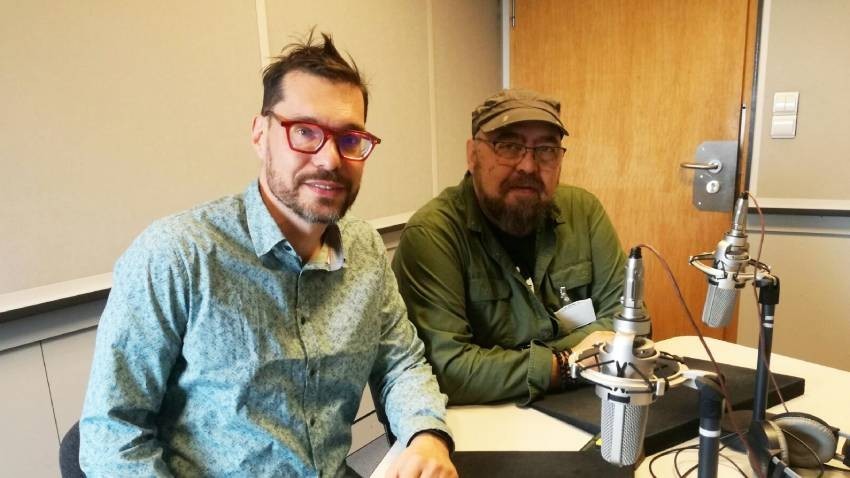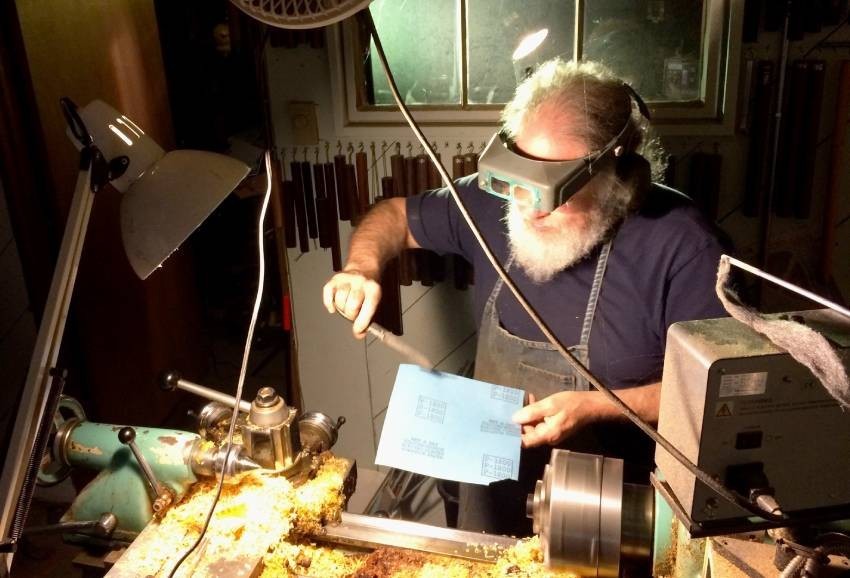''I wish that more Bulgarians would start appreciating their culture and country without waiting for foreigners to appreciate them first’’. These words belong to Alexander Eppler, an American of Russian descent who calls himself a Bulgarianophile. He proves this by his lifelong dedication to Bulgarian folklore, to the instrument typical of our folk music - kaval, and the making of exquisite kavals. The story of this love for Bulgaria is told in the film Kaval Park. The film was directed by Bogdan Darev who lives in Seattle. Today, the film sets off on a journey to the hearts of Bulgarians through screenings in 16 Bulgarian towns.
The film was made possible with the support of the Bulgarian community on the West Coast of the United States. It tours Europe and America and is also watched by many foreigners. Now it is time for the audience in Bulgaria to meet Alexander Eppler, look at their homeland from a different perspective, smile, shed a tear and… fall in love.

The film was presented in Bulgaria by director Bogdan Darev and kaval player Vasil Denev, who has been living with his family in Seattle for years. His friendship with Alexander Eppler, '’this kind man with an unmistakable resemblance to Santa Claus’’, is at the heart of the film Kaval Park:
''I came up with the idea to find someone to make a film about this wonderful man when I was watching a video of a Bulgarian journalist about a ‘lunatic’ from Seattle, and I asked myself ‘is this what we should be proud of?!’’. "In Seattle, there is such an amazing person with whom we can be proud. His name is Alexander Eppler and he is one of the best kaval makers. He is not Bulgarian by birth or blood, but he captivated me with his first words that he is a Bulgarianophile. He used to say: ‘'I am Russian and I love Bulgaria. You have given us everything, and Bulgaria stands far above Russia!'’- said Vasil Denev. His first meeting with Eppler was during a concert by the world-renowned kaval player Theodisii Spassov in Seattle, which evolved into a long-lasting friendship. Denev often visited Eppler’s studio and his ''Bulgarian garden'' to play together and talk about Bulgaria. There he discovered the best kaval he had ever played:

Eppler’s parents, who dreamed of emigrating to Bulgaria after the end of World War II, raised him to love this country. However, they saw that Bulgaria was occupied by the Soviet Union and went to the United States, says Vasil Denev. As a child Eppler was fascinated by the magic of Bulgarian folklore and he learned to play the kaval. At the age of 14 he went to a concert by a Bulgarian ensemble in the United States, where he received an invitation to come to Bulgaria to learn the native rhythms. "Kaval Park recounts this obstacle-filled journey. Throughout his entire life Alexander Eppler dreamed of going to Bulgaria again. Although he was unable to do it physically, he returns to Bulgaria through the film and his Bulgarian friends from Seattle.
"Bulgaria has given me so much, and I want to give something back", Eppler once said. Through this film he gives us a positive narrative about Bulgaria, which is much needed in today's turbulent times.
''Kaval Park is as much a documentary as it is an art film. I was very happy because there are young people with no connection to our folklore tradition who see something more in the film, something that concerns our values and what Bulgaria can give to the world", explained director Bogdan Darev. "After the screening, you see people with tears in their eyes and smiles on their faces", added Vasil Denev.
One of the viewers’ comments is yet another proof of the inspiring power of the film: ‘Hell, if a 14-year-old American can sneak into communist Bulgaria to study music, then nothing can stop me from pursuing my dream!’, says Clayton from Seattle.
Published and translated by Kostadin AtanasovPhotos: Private archive; Kaval Park; Facebook/kavalpark
Abstract, objectless, geometric – this is an entire concept of meaning and design on which 20th century art is based. The leading and connecting idea in it is the freedom of the author, but also of his or her audience. Visually, through geometric art,..
VFU (Visionary Font Ultra) – this is the name a third-year student from Varna Free University, Volodymyr Fedotov, has given to the font he is presenting at the International Triennial of Typography in Poland. “To create a font takes a sense of..
On the 143 rd birth anniversary of foremost Bulgarian painter Vladimir Dimitrov-the Master, an award ceremony will take place at the art gallery in the town of Kyustendil, at which the national prize for painting for 2024 will be awarded...
At a special ceremony at the Romanian Embassy in Sofia, Ambassador Brândușa Ioana Predescu presented Bulgarian conductor Nayden Todorov with the Order of..

+359 2 9336 661
